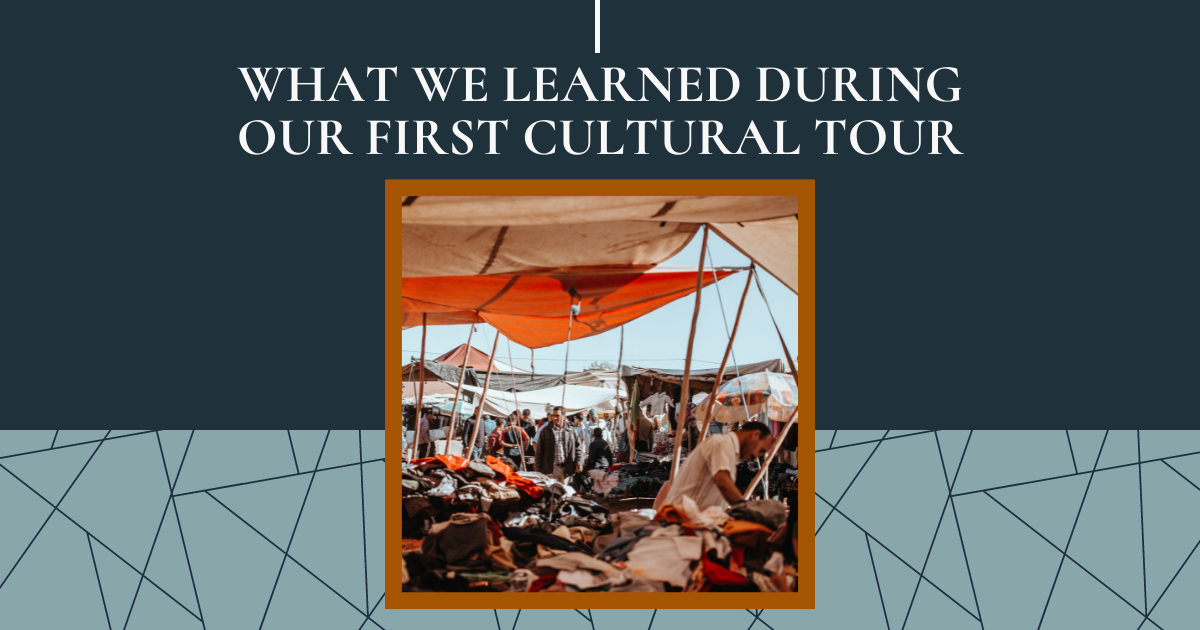Culture 101
What do we mean when we use the word culture? And what is the point in even talking about different cultures? Merriam Webster has a few different definitions of culture.
First, culture can be "the customary beliefs, social forms, and material traits of a racial, religious, or social group; also : the characteristic features of everyday existence (such as diversions or a way of life) shared by people in a place or time.” We also use culture to talk about “the set of shared attitudes, values, goals, and practices that characterizes an institution or organization,” such as corporate culture.
Culture includes social behaviors and norms, customs, beliefs, knowledge, language, arts, food, religion, dress, and demeanors. It is an umbrella term that encompasses much of life, and therefore it is not simple to define. There are cultures of a country as a whole, but also regional cultures within a country. There are cultures in different families, and also cultural traits that define a generation. Then there are individual outliers within cultures who may not fit in and follow the norms of the surrounding culture because of the individual’s own unique personality. Humans are messy, and so it may be difficult to try to separate out all of these realities.
Culture is often described as an iceberg. There is the part of the culture that we can easily see and observe: surface or observable culture. Then there is the underlying part of culture that is the much larger part of the iceberg: the invisible or deep culture. These are the notions and unwritten rules we carry with us, driven by our values and beliefs. The deeper aspects of culture are the driving forces that determine food, festivals, arts, and the other features of culture that we can easily see.
Given all of these complexities when it comes to understanding different cultures, we may feel like we are already overwhelmed and drowning. What is the point in understanding culture?
Culture matters because people matter.
So often, the subject of culture is only addressed in terms of cultural differences. That framework makes it seem like culture is only meant to divide us as humans. But cultural differences don’t have to build walls between us. When we get to know someone else’s culture, we are reaching out, we are welcoming, we are giving someone the dignity of trying to understand them better.
If you have a dinner party, you may ask in advance if any of your guests has food allergies. You may even find out if there are any foods your guests do not like. And if you really want to make sure your guests will enjoy the food, you may ask what their favorite food or dessert is. This is hospitality. When we have intercultural relationships (where we befriend someone or work with someone from a culture different than our own), we want to be hospitable in these relationships, which involves getting to know someone. This hospitality will be so much more than just finding out the foods they like and don’t like. It leads us to look at what lies below the surface in order to understand even what we cannot see, the motivations and values a person has. We study culture so that we can be hospitable, or so that we can be the gracious guest. We want to show people that we value them, and we do that by growing in understanding—by building bridges across cultural divisions—rather than walls.
Culture is everything that makes up our human lives, and culture matters because people matter.













Morocco is a very unique country for several reasons. The first is its strategic location in the northwest of the continent of Africa, just 14 kilometers south of Europe. This beautiful country is bordered by the Mediterranean Sea in the North, the Atlantic Ocean in the West, Algeria to the East, and Mauritania to the South. For this reason, Morocco is a crossroads where cultures, civilizations, and ethnicities meet.